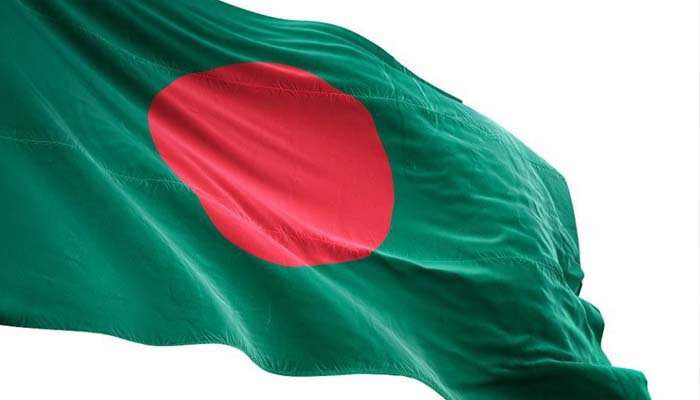TRENDING TAGS :
Modern Bangladesh provides textbook breeding grounds for 'ressentiment'
Modern Bangladesh in many ways provides textbook breeding grounds for "ressentiment", claims a new book which looks at that country's travails with extremism and politics.
New Delhi: Modern Bangladesh in many ways provides textbook breeding grounds for "ressentiment", claims a new book which looks at that country's travails with extremism and politics.
ALSO READ: E-auction: Painiting of Modi with Gandhi receives highest bid of Rs 25 lakh
In "Many Rivers, One Sea: Bangladesh and the Challenge of Islamist Militancy", journalist Joseph Allchin analyses the Bangladeshi body politic to discern how Islamist radicals hope to reshape this country.
"It would be wrong to try to make sense of terror in Bangladesh only through comparison and analogy. But it would be even more erroneous to suggest that Bangladesh's experiences are aberrations and not linked to or symptomatic of more widely held psychological phenomena," he says.
"Modern Bangladesh in many ways provides textbook breeding grounds for 'ressentiment'. It is a young political entity, now only four and a half decades old, and many of the terms of its constitution are not upheld. Promises of equality and justice go unmet, while corruption and inequality flourish," he writes.
ALSO READ: Draft rules on breeding, transporting poultry birds ready: Centre to HC
Allchin, who has covered Bangladesh for decades, scrutinises the careers and dissensions of the country's political rivals: current Prime Minister Sheikh Hasina, and her predecessor Khaleda Zia besides examining the multitude of relationships between radical Islam and politics in India's neighbourhood, laying bare the forces that seek to shape Islamic nation's present and its destiny.
He says a number of concurrent trends and phenomena coalesce to cause extremism, which has the capability in rough political seas to upturn the messy but supposedly liberal character of Bangladesh since its inception as a nation state in 1971.
"In recent years, the guardians of the Bangladeshi state have accommodated more demands from radical groups as they seek to maintain their own power. If this goes on, politics in Bangladesh will undoubtedly continue to be shaped by the movements, people and ideas discussed in this book," he argues.
The book, published by Penguin Random House, was conceived in the rubble of the July 2016 hostage crisis which shook Bangladesh and drew international attention to the country, for all the wrong reasons.
ALSO READ: Jewellers see no sparkle in sales this Dhanteras
Twenty-nine people died in the assault on the Holey Artisan Bakery in Dhaka by five young men.
He tells the story of a sequence of events in Bangladesh that spawned the modern phenomenon of militancy in the country.
"In doing so, through snapshots of, on occasion, disparate times, events and actors, I also delve into how historical movements and ideologies forged anxieties and the grounds on which militancy has arisen," he writes.
Allchin also discusses about the Rohingya issue.
He says the Awami League government had been jittery about Rohingya militancy in Myanmar in the years leading up to 2017's vast exodus.
"The government saw it as a potential nuisance, and seemed suspicious of those wanting to work with the group. Sheikh Hasina personally stated in 2012 that the Rohingya issue is not our responsibility," he says.
"However, once the magnitude of the exodus became apparent, Muslims and non-Muslims both inside and outside Bangladesh were horrified by the human suffering, Islamist organisations not least among them," he argues.
ALSO READ:Sena’s Raut posts cartoon taking potshots at alliance partner
Soon organisations and groups rushed in to camps to provide services for the refugee population.
According to the author, the Awami League's stance on the Rohingya requires striking a delicate balance locally as well: the rural Cox's Bazar district has borne the brunt of the impact of the crisis, with local markets, forests and livelihoods significantly disrupted by the sudden influx of 700,000 new refugees.
"The League must be careful not to appear to be granting too many opportunities and allowing aid to the refugee population while the local electorate remains poor and disenfranchised," he says.
The title of the book came from an investigator for Bangladesh's International Crimes Tribunal (ICT).
"This team of police was tasked with poring over the country's history to attempt to correct decades of impunity and challenge ideologies that have existed in the mainstream whilst being drastically at odds with the country's founding principles," Allchin says.
The convergence of the ICT and militancy was apparent, and Allchin recalls asking one of these investigators about the extent to which the new militant attacks were linked to the kind of politics that the accused had been involved with in the 1970s.
The officer used a very apposite Bangladeshi analogy: many rivers, leading to one sea.
"The strands of associations and networks that made up the Islamist political world were many, like the rivers that make up the Ganges delta, but they all led or aspired to lead to the same sea. This seemed a fitting analogy in a geographic sense, but also in that it conveyed the complex disorder that organisations and ideology had in the Bangladeshi theatre," he says.
ALSO READ:New Delhi: 2,155 lives lost in monsoon rains, floods across India



